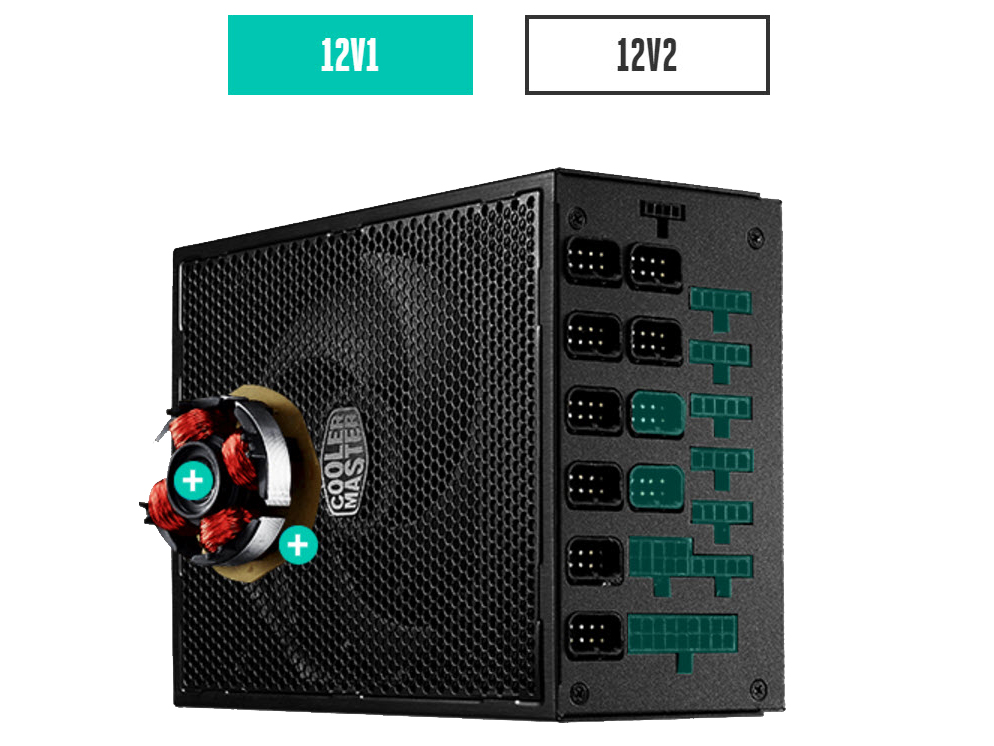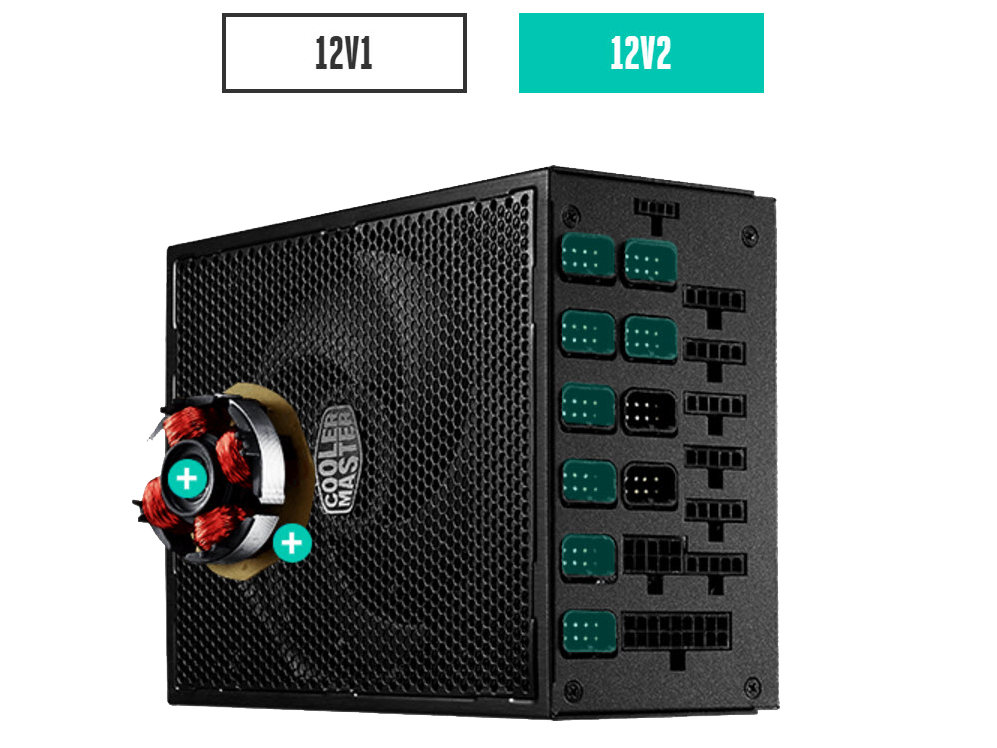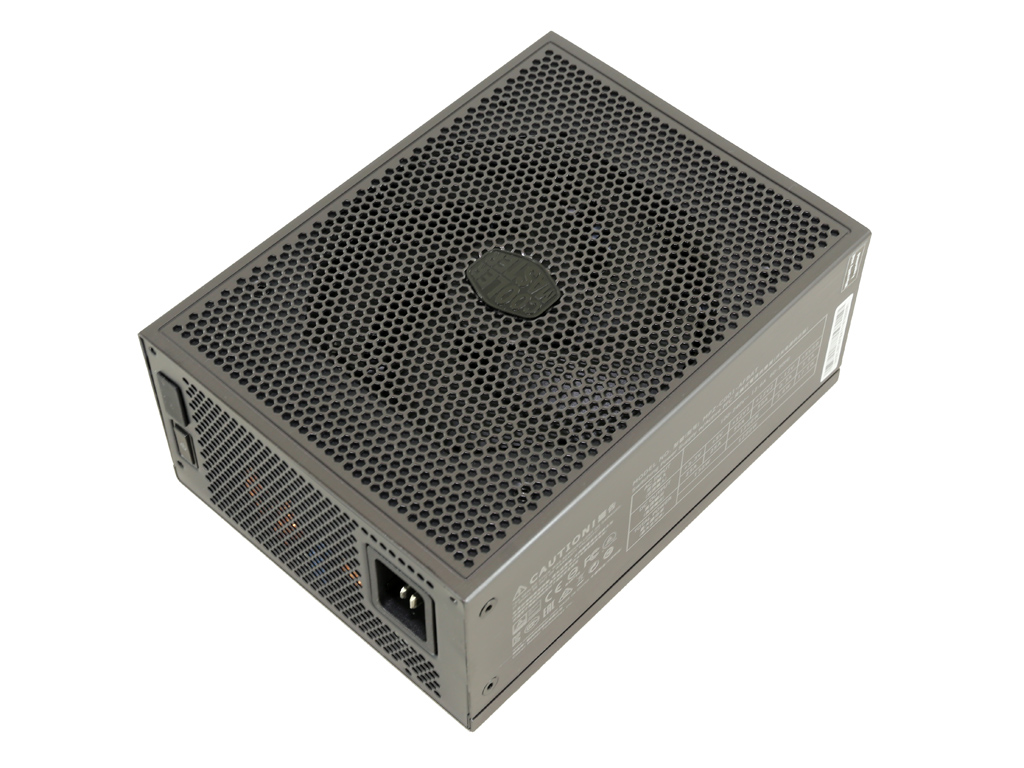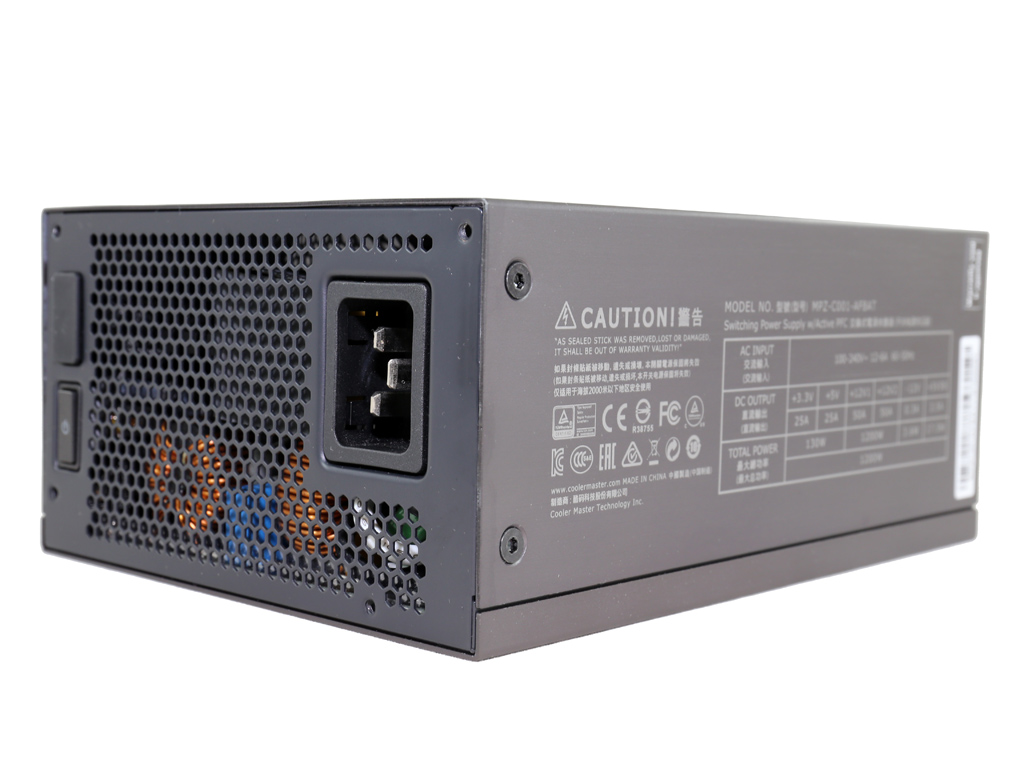Early Verdict
A fairly good performing PSU which however cannot compete with the high-end competition in this category, mostly because of its insanely high price. Cooler Master should slash its price the sooner the possible and a few platform upgrades would be very welcome, as well.
Pros
- +
Full power at 47 °C
- +
Efficient (with 10%-100% load levels)
- +
Low ripple
- +
+12V performance
- +
Silent
- +
Quality caps
- +
Fully modular
- +
Quality fan
- +
Number of connectors
- +
Mobile app
- +
Bluetooth dongle
- +
Warranty
- +
Nice finish
Cons
- -
Price
- -
Efficiency at light loads
- -
Hold-up time
- -
Expected a fully digital platform at this price tag
- -
Monitoring/control software needs work
- -
Minor rails (including 5VSB) performance
- -
All caps should be Japanese
- -
Power switch's quality
- -
Large dimensions
Why you can trust Tom's Hardware
Cooler Master MasterWatt Maker 1200 PSU Review
A while ago, Cooler Master introduced its long-awaited MasterWatt Maker 1200, and we finally have a sample in our hands to evaluate. The MasterWatt Maker family is the company's flagship, and for the moment this is the line's only model. However in the future Cooler Master plans to add a higher-capacity 1.5 kW member.
The MasterWatt 1200 features Titanium-class efficiency and a digital interface that facilitates its connection to a PC or smart mobile device, if the provided Bluetooth dongle is used.
Cooler Master relies on Enhance Electronics for this design and the outcome is quite interesting. The MasterWatt 1200 easily differentiates itself from the competition, not only with a unique exterior, but also thanks to its list of features. For starters, it uses a unique modular panel with larger pins that can handle up to 1.5x more amperage compared to the standard pins/plugs and connectors. This is a very useful feature, since in high-capacity units and under increased loads, the connectors and pins on a modular panel take lots of stress, which can lead to melted connectors and dangerous shorts in extreme cases.
Another interesting feature is the PSU's ability to be monitored and partially controlled through a mobile device over Bluetooth 3.0. We've seen various Bluetooth-based PSU control solutions in the past, but none of them made it to production. This fact makes Cooler Master the first company with a desktop power supply that actually makes effective use of the Bluetooth interface.
The MasterWatt 1200 caught our attention as soon as it was announced, and we're anxious to see how it performs on the test bench. Given a lofty price tag, it has to face two imposing competitors: the Titanium-rated Corsair AX1500i and EVGA SuperNOVA 1600 T2. In a comparison of capacity, the MasterWatt 1200 falls far behind them both. Thus, it'll need to emerge victorious everywhere else to secure a win.
Specifications
Besides 80 PLUS Titanium efficiency, this PSU is fully modular and is rated at 50 °C for continuous full-power delivery. All necessary protection features are accounted for, including over-temperature protection. The fan uses a looped dynamic bearing, and according to the schematics Cooler Master gave us, it looks to be a fluid dynamic bearing derivative. According to the company's claims, this bearing should last for at least 160,000 hours. The fan profile can be controlled through the bundled Connect software; in addition to pre-configured profiles, you're able to create a custom one as well. Finally, the provided warranty is pretty long; however, Cooler Master should match Corsair's and EVGA'a 10-year coverage.
Power Specifications
| Rail | 3.3V | 5V | 12V1 | 12V2 | 5VSB | -12V | |
|---|---|---|---|---|---|---|---|
| Max. Power | Amps | 25 | 25 | 50 | 50 | 3.5 | 0.3 |
| Watts | 130 | 1200 | 17.5 | 3.6 | |||
| Total Max. Power (W) | 1200 |
There are two +12V rails that can be combined through Cooler Master's Connect software if you select the single +12V rail mode. The minor rails can provide enough juice to support a high-end system, and the 5VSB rail is pretty strong as well.
Get Tom's Hardware's best news and in-depth reviews, straight to your inbox.
Cables And Connectors
| Modular Cables | |||
|---|---|---|---|
| Description | Cable Count | Gauge | Connector Count (Total) |
| ATX connector 20+4 pin (700mm) | 1 | 18AWG | 1 |
| 4+4 pin EPS12V (680mm) | 1 | 16AWG | 1 |
| 4+4 pin EPS12V (800mm) | 1 | 16AWG | 1 |
| 6+2 pin PCIe (600mm+120mm) | 4 | 16AWG | 8 |
| 6+2 pin PCIe (760mm) | 2 | 16AWG | 2 |
| SATA (450mm+120mm+120mm+120mm) | 2 | 18AWG | 8 |
| SATA (550mm+120mm+120mm+120mm) | 2 | 18AWG | 8 |
| Four-pin Molex (550mm+120mm+120mm+120mm) | 2 | 18AWG | 8 |
| Four-pin Molex (450mm+120mm+120mm+120mm) / FDD (+120mm) | 1 | 18AWG | 4 / 1 |
The number of provided cables and connectors is ample, covering any conceivable usage scenario. With 10 PCIe connectors and two EPS connectors available at the same time, there is nothing more to ask. In addition, Cooler Master provides 16 SATA connectors and 12 peripheral ones, along with a single Berg connector that unfortunately doesn't come as an adapter but is installed onto a modular cable.
Cable length is satisfactory, though we would like to see more distance between SATA and peripheral connectors (at least 15cm). As you can see in the table above, the EPS and PCIe connectors use thicker wires for lower voltage drops, while the other connectors employ the typical 18-gauge wires.
Power Distribution
The MasterWatt 1200 has two +12V rails that can be combined into a single one through the provided software.


The first +12V rail feeds all peripheral connectors, along with a pair of eight-pin ones and the 24-pin ATX cable's sockets. The second +12V rail feeds the remaining eight-pin sockets. Power distribution looks to be good as long as you don't connect an EPS cable along with a PCIe one on the pair of sockets that are powered by the first +12V rail. However given the number of PCIe connectors we believe that the second +12V rail should be stronger, meaning that its OCP triggering point should be set higher than the first +12V rail's.
MORE: Best Power Supplies
MORE: Power Supplies 101
MORE: How We Test Power Supplies
MORE: Picking The Right Power Supply: What You Should Know
MORE: All Power Supply Content
Current page: Cooler Master MasterWatt Maker 1200 PSU Review
Next Page Packaging, Contents, Exterior, And Cabling
Aris Mpitziopoulos is a contributing editor at Tom's Hardware, covering PSUs.
-
Onus Shades of the GX line; Coolermaster swings for the fences, but a competitor (pick one) in the outfield snags it and throws this one out trying to stretch a single to second base.Reply -
MasterMace CM doesn't get to put a $450 price tag on something that isn't in the same park. That voltage regulation is disappointing.Reply -
turkey3_scratch A lot of hype and little delivery for that price tag of course. Lower that price down to $200 and then we may be talking. The efficiency under low loads was quite poor. I'd like to bash the 5VSB regulation, though that's going to be unimportant and unrealistic with the majority of consumers, having load changes on that rail. Though if you are charging multiple devices I'd rather have it at 5V than 4.75V.Reply
At least the transient response performance was really good. The PWR_OK signal, eh. Aris, do you think that transient filter is really enough? I have a feeling it would fail EMI testing, only 4 y caps, 4 x caps, and 2 cm chokes on the unit.
Overall, Cooler Master paired with the wrong OEM. -
Aris_Mp the transient filtering stage looks complete since it has more than the required X caps, however you can never know unless you actually test it. I have the equipment and knowledge but I lack the time to do it :)Reply -
turkey3_scratch What are the exact requirements? I know what the ATX spec says but you have units like the FSP Hydro G 750 that failed by a good margin with 4 y caps, 2 x caps, and 2 cm chokes. So when talking about a 1200W unit with 4 y caps, 4 x caps, and 2 cm chokes, those 2 extra x caps are enough to do the trick?Reply -
Nuckles_56 The performance per dollar chart was great, it showed how badly overpriced this unit is and that there is a lot which could be improved on for the money spent on the unitReply -
Andi lim It's seem like the solid polymer caps on front side modular PCB's not from Nichicon, I think it belongs to Unicon taiwan ( UPT series ).Reply -
jimmysmitty Reply18352433 said:CM doesn't get to put a $450 price tag on something that isn't in the same park. That voltage regulation is disappointing.
Sadly it is more than the AX1500i, lower efficiency and specs overall and a lower warranty (7 year vs 10 year).
If someone is going to spend that much on a PSU It would be better to go for the Corsair.

